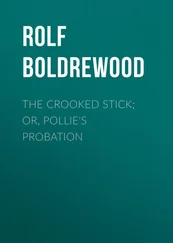Rolf Boldrewood - War to the Knife
Здесь есть возможность читать онлайн «Rolf Boldrewood - War to the Knife» — ознакомительный отрывок электронной книги совершенно бесплатно, а после прочтения отрывка купить полную версию. В некоторых случаях можно слушать аудио, скачать через торрент в формате fb2 и присутствует краткое содержание. Жанр: foreign_antique, foreign_prose, на английском языке. Описание произведения, (предисловие) а так же отзывы посетителей доступны на портале библиотеки ЛибКат.
- Название:War to the Knife
- Автор:
- Жанр:
- Год:неизвестен
- ISBN:нет данных
- Рейтинг книги:4 / 5. Голосов: 1
-
Избранное:Добавить в избранное
- Отзывы:
-
Ваша оценка:
- 80
- 1
- 2
- 3
- 4
- 5
War to the Knife: краткое содержание, описание и аннотация
Предлагаем к чтению аннотацию, описание, краткое содержание или предисловие (зависит от того, что написал сам автор книги «War to the Knife»). Если вы не нашли необходимую информацию о книге — напишите в комментариях, мы постараемся отыскать её.
War to the Knife — читать онлайн ознакомительный отрывок
Ниже представлен текст книги, разбитый по страницам. Система сохранения места последней прочитанной страницы, позволяет с удобством читать онлайн бесплатно книгу «War to the Knife», без необходимости каждый раз заново искать на чём Вы остановились. Поставьте закладку, и сможете в любой момент перейти на страницу, на которой закончили чтение.
Интервал:
Закладка:
"The heart of Otakou is sore," replied the chief, gravely. "He was mocked by the pakeha. His mana was injured. He wished for utu , but I told him there were matters to be considered; that the tribe was in runanga concerning the Waitara land – our land, the land of my people. After that he can take his musket in his hand. It is his own affair."
"It was a folly, a child's trick. The pakeha was beaten by him. He fell on the ground. His countrymen would not defend him. He had done wrong. Were they afraid of forty or fifty Maoris? No! They knew that the pakeha had done wrong. They would not lift a finger for him."
"It is well," said the chief; and advancing a few steps, he spoke rapidly to the insulted warrior, who sat moodily alone. "The Rangatira with the white man says the pakeha has done wrong. His people disown him. The matter is ended." Here he broke a wand which he carried in his hand in two pieces, in token that the decision was complete. Upon which the countenance of the insulted Maori cleared visibly; he arose, and walked to the other side of the camp.
And now Mr. Lochiel commenced a conversation in Maori with the chief, which evidently was more important, and, as it proceeded, became deeply interesting. The flashing eye of the chief, his impetuous words, his frowning brow, and ever and anon the deep, resonant tones of his voice, intimated so much.
Captain Macdonald translated from time to time, for the information of Massinger, who became anxious to learn more of the subject of the important conference, for such it evidently was. The colonist spoke calmly, but with weight and effect, as was shown by the quick rejoinders and deeply moved expression of countenance of his interlocutor.
"It is about this Waitara block which the Government has bought lately," said Captain Macdonald. "He disputes the right of Teira to sell it; says that he will not acknowledge any sale or transfer. That the land belongs, in named and measured portions, to individuals and families in the tribe. That no single person has the right to dispose of it. That the whole tribe must unite, and through him, their chief and Ariki , give formal assent to the sale. That he is anxious to be at peace with the Governor and our people, but that he will shed his blood rather than part with this land."
"But surely there must have been official correspondence about the sale of this important block?" said Massinger. "Land is not handed over anywhere like a ton of potatoes."
"To do the Government justice, there has been correspondence enough and to spare," replied Mr. Lochiel. "The chief says he had a letter from the Colonial Secretary that Teira's land (as alleged) would be bought by the Governor. That his rule was that each man was to have the 'word' about his own land – that the word of a man with no claim would not be listened to."
"But that is the whole business, as I understand the matter. The chief says it is not the seller's land, though he may have a separate portion."
"That is what Te Rangitake wrote. 'Friend! Salutation to you! I will not agree to our bedroom being sold (I mean Waitara here), for this bed belongs to the whole of us! And do not you be in haste to give the money. If you give the money in secret, you will get no land. Do not suppose that this is folly on my part. All I have to say to you, O Governor! is that none of this land will be given to you — akore, akore, akore (never, never, never) – while I live.'"
As these words rang out until they reached a shout of defiance, the greater part of the assembled warriors started to their feet, and standing round their chief and the three white men, looked as if but a very little additional excitement would suffice to lead them to death or glory, commencing with the slaughtering of any chance pakehas whom they might meet.
"This was not by any means intended for a declaration of war," Mr. Lochiel averred. "The Maoris are very demonstrative in oratory, and have always been in the habit of using much parliamentary discussion; even of giving full and official notice before war is actually declared."
But as the three Europeans wended their way back to the city, the countenances of the older men expressed grave doubt – even expectation of evil.
"As sure as we stand here," said Mr. Lochiel, coming to a halt, and looking over the waters of the harbour, lying calm and peaceful in the rich tints of the setting sun, "and as certainly as that sun will rise tomorrow, there will be trouble – war to the knife, I believe – if the Government persists in paying that fellow Teira the cash and claiming the whole block."
"I agree with you," said his friend. "How the Governor, who has stood firm in so many similar cases, should have allowed himself to be hoodwinked in this, passes my knowledge. These Ngatiawas will refuse to quit their land; and the moment the surveyors go on it, there will be the devil to pay."
"But what can they do?" queried Massinger. "Will they kill the survey party?"
"No! certainly not. They rarely act in a hurry. They will probably use merely passive resistance at first. But resist they will. You may take their oath of that."
"And if that has no effect?"
"Then they will fight in earnest. They are devils incarnate when their blood is up. I have seen many an inter-tribal raid and battle; I don't wish to see another. But there will be murder in cold blood – killing in hot blood, with all the devilry of savage warfare. The blood of the men, women, and children certain to be sacrificed before the campaign is over, will be on the heads of those whose folly and greed provoke the outbreak."
"And is there no means of arresting this mad action?" said the younger man. "Will not leading colonists take the initiative in preventing a flagrant injustice – this removal of landmarks which must be paid for in blood?"
"All depends upon whether the peace party in the House is strong enough to defeat the machinery of the land-jobbers. If not, one thing is certain. We shall see the beginning of a war of which it will be hard to predict the end – much more what may happen in the meantime. And now, if you and my old friend here will dine with me this evening, I will promise not to sell you any land, or otherwise take advantage of your presumed inexperience as a newly arrived lamb among us wolves of colonists."
Nothing could possibly have been suggested more in accordance with our hero's tastes and inclinations, and he congratulated himself on his prospects of gaining real reliable acquaintance with New Zealand politics. This arrangement was duly carried out, and the three friends walked together to Mr. Lochiel's house. He had begged them to dispense with any change of attire, as the dusk was closing in and Mrs. Lochiel was absent on a visit. When they reached the mansion, beautifully situated on a headland overlooking the harbour, its size and appointments were a surprise to Massinger, doubtful of the class of habitation which they were approaching.
"Yes," said the venerable pioneer, as they stood in the handsomely furnished drawing-room, replete with pictures, casts, curios – a most generous assortment of objets d'art , evidently the fruits of a lengthened continental ramble; "things are much changed since Thornton and I bought that island you see out under the line of moon-rays, from the reigning chief, more than thirty years ago. He and I lived there for many a day, chiefly upon pork, fish, potatoes, and oysters. How well I remember the good old chief, to whom we 'belonged' as Pakeha Maoris, and the first night we spent there!"
"And at that time had none of the land here been sold to the Government?" asked Massinger.
"Not one solitary acre, where Auckland now stands – 'nor roof, nor latched door,' to quote the old song. And now, look at it."
Читать дальшеИнтервал:
Закладка:
Похожие книги на «War to the Knife»
Представляем Вашему вниманию похожие книги на «War to the Knife» списком для выбора. Мы отобрали схожую по названию и смыслу литературу в надежде предоставить читателям больше вариантов отыскать новые, интересные, ещё непрочитанные произведения.
Обсуждение, отзывы о книге «War to the Knife» и просто собственные мнения читателей. Оставьте ваши комментарии, напишите, что Вы думаете о произведении, его смысле или главных героях. Укажите что конкретно понравилось, а что нет, и почему Вы так считаете.












